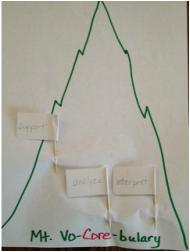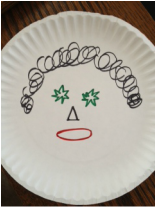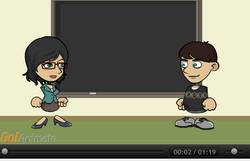
Spurred to action by Sprenger's book, I now have these words on my desk, right where I do my lesson planning. I stare at them every day, and hope to become so in tune with them, that I harmoniously add them into instruction at every opportunity. You can download them here.
Always looking for a visual, tactile way to engage students with vocabulary, I tried something new today. One of the classes I co-teach is using a mountain climbing theme this year, so today we started our hike up





 RSS Feed
RSS Feed